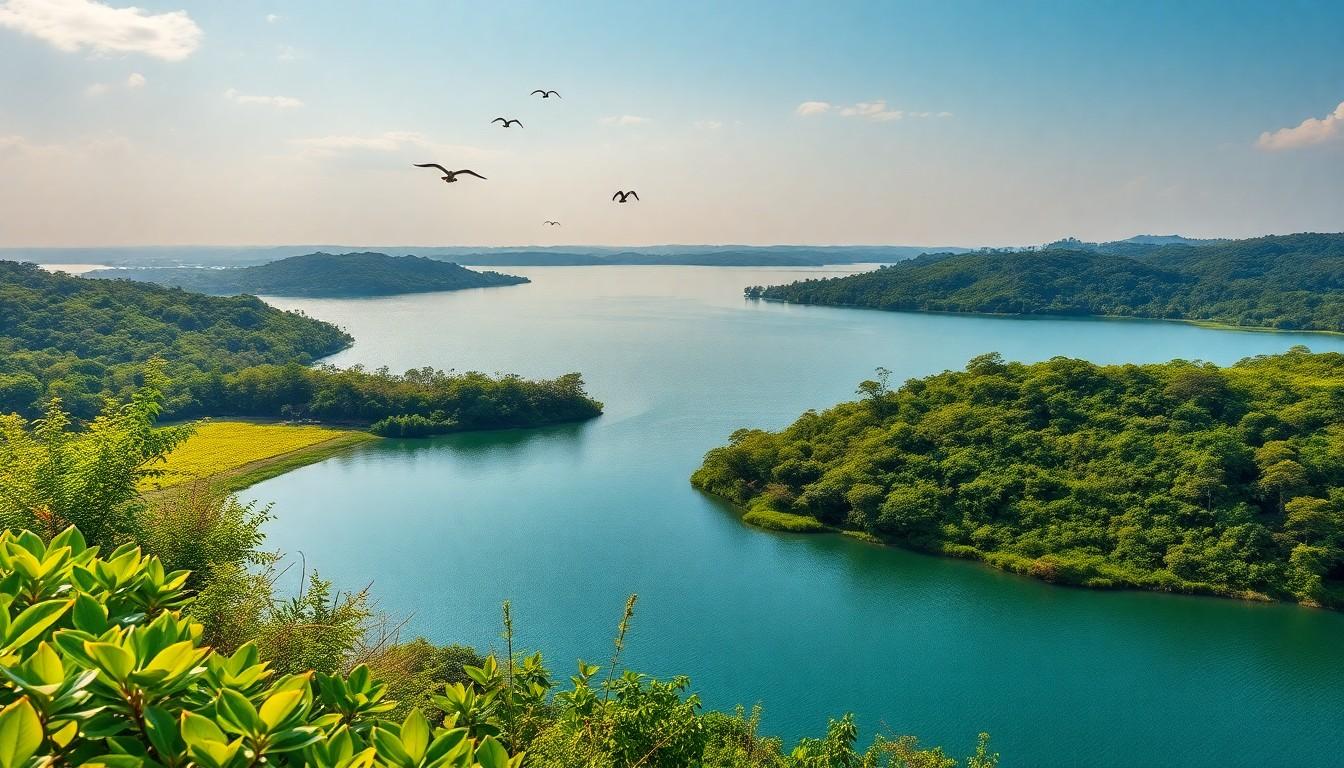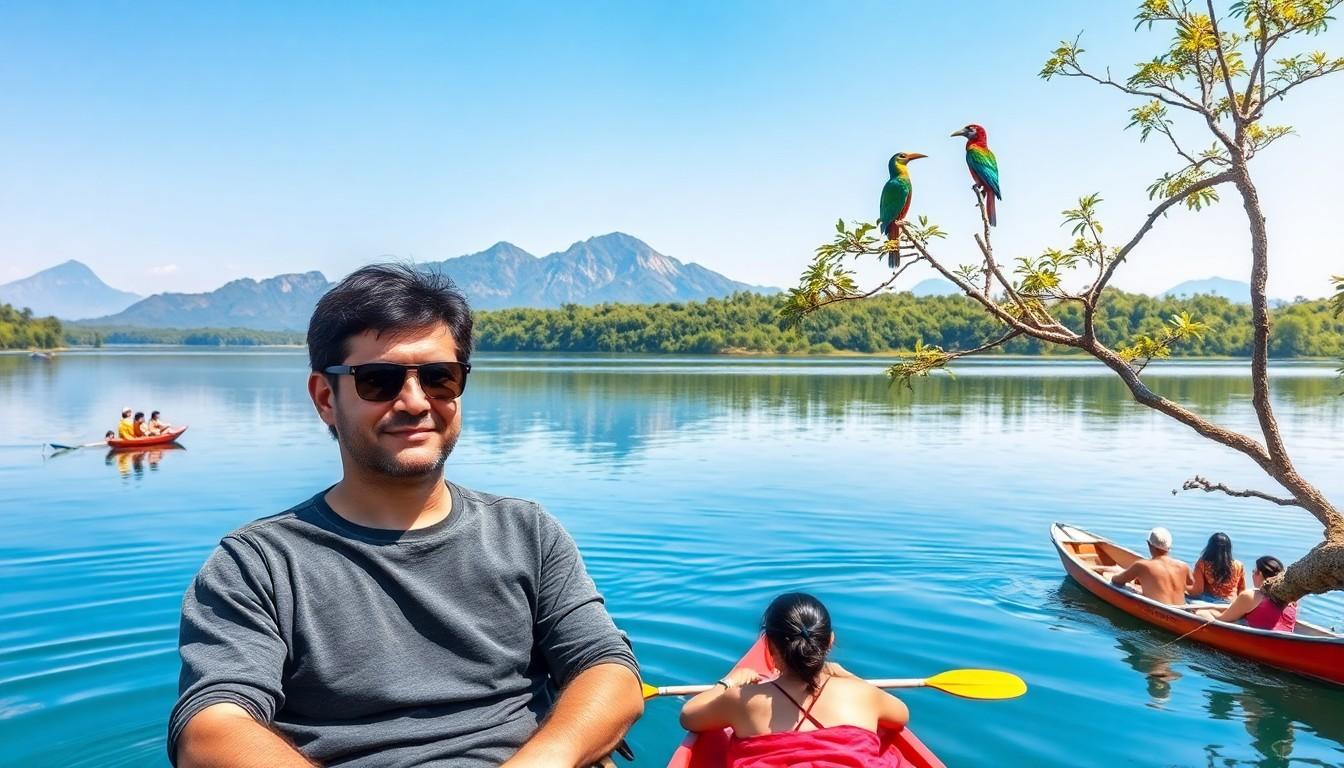Nestled in the heart of nature, Lake Faticalawi isn’t just another pretty face in the landscape; it’s a vital ecosystem that packs a punch. With its shimmering waters and vibrant surroundings, this lake plays a crucial role in supporting local wildlife and providing essential resources for nearby communities. But wait, there’s more!
Imagine a place where adventure meets serenity. Lake Faticalawi offers everything from fishing and kayaking to tranquil picnics by the shore. Its importance goes beyond recreation; it’s a lifeline for the environment and a hub for cultural heritage. Dive into the depths of why this stunning lake deserves a spot on everyone’s must-visit list, and discover how it keeps the balance between nature and human activity.
Overview of Lake Faticalawi
Lake Faticalawi plays a crucial role in the local ecosystem. Situated within scenic surroundings, the lake provides a habitat for various wildlife species, enriching biodiversity in the area. Many fish thrive in its waters, attracting both local anglers and tourists eager to experience recreational activities.
This lake serves as a water source for nearby communities. Many residents rely on it for daily water needs, contributing to agriculture and sustainable practices in the region. Cultural heritage remains intertwined with the lake’s significance, as traditions and local practices often revolve around its resources.
Kayaking and fishing are popular activities enjoyed by visitors. These pursuits offer an opportunity to engage with nature while promoting environmental awareness. Many local events encourage community participation, fostering relationships among residents and visitors alike.
Lake Faticalawi also features scenic landscapes that enhance its appeal. Photographers and nature enthusiasts frequently visit, capturing its beauty through various perspectives. Many hiking trails surround the lake, providing access to breathtaking views and unique experiences.
Environmental preservation is critical to this region. Conservation efforts focus on maintaining water quality and protecting wildlife habitats. Organizations often collaborate to raise awareness about the lake’s importance, ensuring its health for future generations.
Ecological Significance

Lake Faticalawi serves as an essential ecosystem, offering diverse habitats for various species while benefiting local communities through vital resources.
Unique Biodiversity
This lake hosts a rich array of flora and fauna. Over 100 plant species thrive in its surrounding areas, contributing to its vibrant ecosystem. Numerous bird species inhabit the lake, with approximately 50 species observed annually. Many aquatic organisms, including fish and amphibians, rely on the lake for survival. These species interact in intricate ways, promoting a balanced ecosystem. Rare vegetation flourishes along the shore, enhancing the ecological uniqueness of the region. Protecting this biodiversity fosters resilience against environmental changes and supports community activities focused on nature appreciation.
Habitat for Endangered Species
Several endangered species call Lake Faticalawi home. The lake provides critical habitats for birds like the Black-faced Spoonbill, a species facing serious threats due to habitat loss. Aquatic plants in the area offer shelter for vulnerable fish species. Conservation efforts emphasize protecting these habitats to ensure the survival of endangered organisms. Collaborative initiatives between local communities and environmental organizations focus on educating others about safeguarding both the lake and its wildlife. These efforts strengthen the ecosystem while promoting awareness of the importance of biodiversity conservation in the region.
Cultural Importance
Lake Faticalawi holds deep cultural significance for local communities. It acts as a central figure in their historical narratives and traditions.
Historical Significance
Historical events often unfolded around Lake Faticalawi. Indigenous tribes settled nearby, relying on the lake’s resources for sustenance. This vibrant history includes stories passed down through generations, highlighting the lake’s role in shaping local identity. As a historical gathering place, it witnessed important rituals and ceremonies. Local folklore frequently features the lake, offering insights into the area’s cultural heritage and values.
Local Traditions and Practices
Local traditions extensively involve Lake Faticalawi. Fishing and gathering activities embody ancestral practices and remain vital for community sustenance. Spiritual rituals often take place, celebrating the lake’s life-giving resources. Festivals centered around the lake draw families together, strengthening social bonds. Crafts reflecting the lake’s nature are common, showcasing its influence on the region’s artistic expression. These traditions emphasize respect for the environment while fostering a sense of belonging among community members.
Economic Impact
Lake Faticalawi serves as a vital economic contributor, significantly influencing local livelihood and development. Its natural beauty and resources offer diverse opportunities for economic engagement.
Tourism Opportunities
Tourism around Lake Faticalawi thrives due to its picturesque landscapes. Visitors often partake in kayaking, hiking, and birdwatching, attracting nature enthusiasts. Local businesses benefit from increased foot traffic, leading to higher revenues in restaurants and lodging. Tour operators frequently offer guided tours to highlight the area’s unique biodiversity and cultural heritage. Festivals celebrating local traditions draw additional crowds, creating seasonal boosts for the economy. Adventure tourism also emerges, appealing to outdoor enthusiasts seeking new experiences.
Fishing Industry
The fishing industry around Lake Faticalawi generates substantial income for local communities. Many residents depend on fishing for their livelihood, supplying fresh fish to markets and restaurants. Local fishing practices are sustainable, contributing to the lake’s ecological balance while supporting livelihoods. Seasonal fishing events promote community engagement and foster tourism, attracting visitors eager to participate. Regulations ensure fish populations remain stable, highlighting the industry’s commitment to conservation. Revenue generated from fishing further stimulates the local economy, enhancing overall community development.
Environmental Challenges
Lake Faticalawi faces several environmental challenges that threaten its ecosystem and the communities that depend on it. The lake’s health and longevity hinge on addressing these issues effectively.
Pollution and Conservation Efforts
Pollution poses a major threat to Lake Faticalawi’s purity. Runoff from agricultural practices and urban development introduces harmful chemicals and sediments into the water. Conservation efforts focus on reducing this pollution through community-led initiatives and educational programs. Implementing sustainable agricultural practices plays a crucial role in mitigating runoff. Furthermore, local organizations strive to clean affected areas and monitor water quality regularly. These collective actions aim to restore the lake’s health and protect its wildlife.
Climate Change Effects
Climate change significantly impacts Lake Faticalawi and its surrounding environment. Altered precipitation patterns affect water levels, which can harm aquatic habitats. Increased temperatures may lead to algae blooms, reducing oxygen levels and threatening aquatic life. Wildlife species that rely on the lake face challenges in adapting to these changes. Yet, community awareness initiatives promote resilience against these climate impacts. By engaging in conservation and habitat restoration efforts, local residents can help secure the lake’s future in the face of climate change.
Conclusion
Lake Faticalawi stands as a vital resource for both the environment and local communities. Its rich biodiversity and cultural significance highlight the interconnectedness of nature and human life. By supporting local wildlife and providing recreational opportunities, the lake fosters a sense of community and environmental stewardship.
As challenges like pollution and climate change threaten its health, ongoing conservation efforts will be crucial. Engaging communities in these initiatives not only protects the lake but also preserves the cultural heritage tied to it. Embracing Lake Faticalawi’s importance ensures its legacy for future generations, making it a true treasure worth protecting and celebrating.

